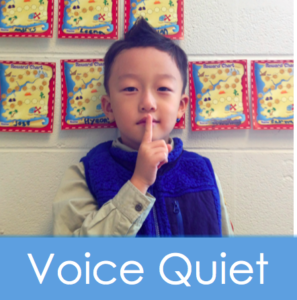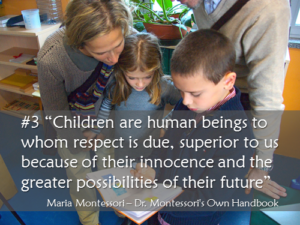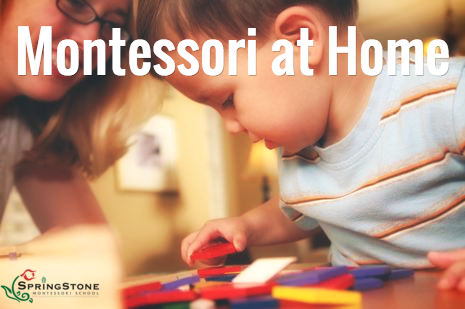The Importance of Tone and Voice Level in the Montessori Classroom
Why is our Tone  and Voice Level so important?
and Voice Level so important?
We have all been in situations in our personal lives where we react, not as the role model we would like to be for our children, but rather as a stressed adult trying to deal with what is in front of us. Our lives are busy, and there is always more to do, and not enough time to do it. We are constantly in a hurry, and our children are not ready to go when we need them to be. We find ourselves raising our voices, we demand, we scream and yell to get our children’s attention. And we feel bad afterwards, but we can’t take back what is already done, and our children will remember the moments we were not in control of our emotions.
Here is a quote from an unknown author that is truly fitting for this topic.
It is not so much what you say as it is the manner in how you say it,
It is not so much the language you use as it is the tone in which you convey it,
Words may be mild and fair, and the tone may pierce like a dart,
Words may be soft as the summer air, but the tone may break my heart,
For words come from the mind,
tone leaps from the inner self revealing the state of the heart.
Whether you know it or not, whether you mean it or care,
keep anger not only out of your words, keep it out of your voice.
Children are sensitive to the world around them. They are much more likely to pick up on how words are said rather than the words themselves. Some children become anxious, others become fearful when they are shouted at. Even if the words are well intended, it is the volume of the message that they hear. Voices raised in frustration or anger can do as much emotional harm as a raised hand inflicts physical pain.
The expectation of a Montessori teacher is to speak in a quiet, respectful voice at all times. When we use a quiet voice, we model appropriate inside voice level to our children. When we keep the noise level low, we provide a quiet working environment that allows our children to focus and concentrate while they complete the important work of the child. It also helps encourage good listening skills.
Children have become accustomed to and surrounded by noise – television, computer and video games, and other people. Hearing a calm and quiet voice is effective in getting our children’s attention because they are not used to it. At first, the children may listen because of the novelty of quiet voices, but later, they learn and understand that this is an appropriate and respectful means of communicating. Usually, being whispered at catches children’s attention. It automatically redirects their attention away from inappropriate activity or behavior onto what the Montessori teacher is saying.
The tone of your voice is just as important as the volume. Our children are much more likely to listen to a voice that sounds warm and encouraging than to one that sounds harsh and judgmental. A caring and inviting tone of voice communicates our desire to have an atmosphere of acceptance, love, and respect.
To conclude this post, here is a quote by Dr. Maria Montessori that represent the importance of respect in our interactions with children.
“To keep alive that enthusiasm is the secret of real guidance,
and it will not provide a difficult task,
provided that the attitude towards the child’s acts be that of respect, calm, and waiting,
and provided that he be left free in his movements and experiences.”
And one more…..


